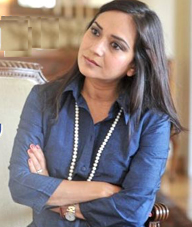Turkey’s 15 minutes of free expression are over
- (0)
\n
Turkey’s 15 minutes of free expression are over –
\n
By Amberin Zaman –
\n
The Globe & Mail –
\n
May 3, is World Press Freedom Day. Amberin Zaman is an Istanbul-based columnist for the independent Turkish daily newspaper Taraf.
\n
\n
 April 24 marked the 99th anniversary of the beginning of the Armenian Genocide. Civilitas, an Armenian NGO, was providing live coverage of a slew of commemoration events in Istanbul – until recently, it would have been unthinkable for Turks to pay homage to the victims, as discussion of the genocide was taboo.
April 24 marked the 99th anniversary of the beginning of the Armenian Genocide. Civilitas, an Armenian NGO, was providing live coverage of a slew of commemoration events in Istanbul – until recently, it would have been unthinkable for Turks to pay homage to the victims, as discussion of the genocide was taboo.
\n
I navigated to Civilitas to watch their webcast from Taksim Square. A dull gray window covered with legalese popped up, reminding me that access to YouTube remains banned.
\n
Welcome to the new Turkey, where freedom of expression is shrinking by the day and which has more journalists in jail than China or Irando.
\n
Over the past year, Prime Minister Recep Tayyip Erdogan has overseen the brutal suppression of mass demonstrations and rammed through controversial laws that augment the powers of the national spy agency and censorship of the Internet.
\n
The bulk of these appear to be designed to stifle further investigation (and debate) of the massive corruption scandal implicating Mr. Erdogan’s family and close circles, and to ease his path to the presidency when incumbent Abdullah Gul steps down in August. Mr. Erdogan’s threats against his perceived enemies have grown louder since his neo-Islamic Justice and Development Party (AKP) thrashed its secular rivals in the March 30 municipal polls.
\n
Is Turkey on the path to becoming another Russia and Mr. Erdogan another Vladimir Putin? This question is frequently asked these days.
\n
It is easy to forget that Mr. Erdogan was not always a bully and that Turkey has never been fully free. Over the past half-century, the army has overthrown four democratically elected governments, and until a few years ago, many newspaper owners and editors toadied up to the generals, just as they do to Mr. Erdogan today. Turkey’s uneasy march toward democracy was long best described as one step forward, two steps back.
\n
After he and the AKP shot to power in 2002, Mr. Erdogan introduced sweeping reforms, chipping away at the army’s influence, reaching out to the Kurds, building new schools and hospitals and transforming Turkey into a freer, richer place. True, his conservative views caused the occasional blip, as when he tried to criminalize adultery. But for the first time, reform outpaced repression and the European Union was shamed into opening membership talks with Turkey in 2005, its first with any majority Muslim country.
\n
It was against this backdrop that, in a 2005 interview with Yeni Safak, a respected pro-Islamic daily newspaper with close ties to the government, I marvelled about feeling truly free as a journalist, with no worries about whether my words would land me in trouble, as they so often had in the past.
\n
Today, as my Twitter feed is inundated with reports of Mr. Erdogan’s latest excesses as well as threats to “rape” and “kill” me over my critical coverage, it’s almost as if those days never existed. These days, repression has overtaken reform, and honest reporting comes at a price.
\n
While it is possible now to write about the Armenian Genocide and to defend the Kurds, it is not acceptable to question Mr. Erdogan’s Syria policy (in my view, disastrous) or to mention government-linked corruption.
\n
The red lines have merely shifted. They used to be defined by the generals; now they are defined by Mr. Erdogan.
\n
Any journalist who dares to breach them can end up without a job, as I did last year when Haberturk, a mainstream Turkish newspaper that published my biweekly column, sacked me for ignoring editors’ warnings about my tone. They were bowing to pressure from the Prime Minister’s office. “Can’t you write about Uruguay or something?” one of my editors had pleaded. Newspaper owners who do not toe the official line are slapped with arbitrary tax fines, cut out of lucrative state contracts, even scolded by Mr. Erdogan himself.
\n
It is tempting to imagine that once Mr. Erdogan leaves power, Turkey will revert to “normal.” Such thinking ignores why he continues to be so popular at the ballot box.
\n
The reason is that most of the people who vote for him care more about economic prosperity than they do about access to YouTube. Mr. Erdogan has improved their living standards and his opponents have failed to convince voters that they can do better. Yet, in Turkey’s polarized atmosphere, to give the Prime Minister credit for past achievements is to risk losing your friends.
\n
Indeed, this peer pressure is almost as much a challenge as pressure from the state. You have to either love Mr. Erdogan or hate him. And this speaks to the lack of tolerance in Turkish society as a whole.
\n
Mr. Erdogan is not a dictator – he is a big disappointment. He had the chance to break with the authoritarianism of the past. Instead, he has embraced it.
\n


















